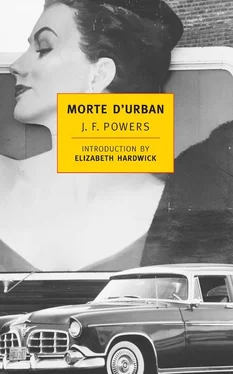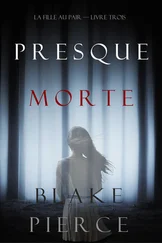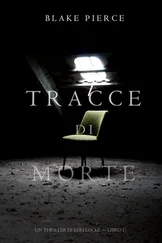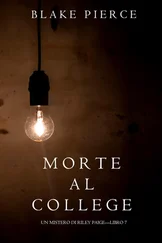“I’ve always admired that Rex,” said Wilf.
“Yes, I know,” said Father Urban.
“Guess what?” said Wilf.
“What?”
“Some guys in town, here, were after that property. Wanted it for summer cottages.”
“You don’t say.”
“I just got wind of it. That wouldn’t have been so good for us, you know. Loss of privacy. And guess who one of ’em was.”
“Who?”
“Wacker at the station.”
10. TWENTY-FOUR HOURS IN A STRANGE DIOCESE
EARLY IN APRIL, as stump removal began, the sound of dynamiting echoed over the land, two farmers who understood such things doing the job, with Father Urban, Wilf, Rex, and, sometimes, retreatants moving from eminence to eminence, away from the noise and flying debris. The open craters, some to be transformed into sand traps, awaited the coming of Mr Robertson. He came with a young assistant, and the two of them spent three days laying out the course, using only steel tape, stakes and string, the naked eye, and binoculars. “She’ll be a little jewel in a few years,” Mr Robertson said, in departing. “But always remember a golf course is like a fancy woman — you have to take care of it.” “I’ll remember that,” said Father Urban, with a smile. “And don’t think you can cheat your course,” said Mr Robertson. “No,” said Father Urban. “Take care of your course,” said Mr Robertson, “and your course will take care of you.” “O.K.” “And it’d be nice if those boys I’m sending up”—Mr Robertson was sending up a couple of expert workmen to do the greens—“could get in some fishing while they’re here.” “We’ll see what we can do, Chub.” “And I’ll be up again, maybe in June.”
By June, the course was beginning to feel and smell right, sweet and right, especially on warm days after mowing. Two mowers, a big one for the fairways, a small one for the greens, had been purchased out of the fund established from Billy’s check in George’s bank, and the course was now playable except for the greens. The workmen who’d built these had come and gone long ago, but their craft — it was really an art — lived after them. Father Urban watched over the greens, saw to it that they were given their formula of fertilizer, were gently watered, mowed, and weeded — by young men in bare feet. First Father Urban employed Brother Harold (who’d reached the point in the chapel where he needed to get away from it and think, before going on) and later a few youngsters from among those now arriving in shifts from the Novitiate. By their willing labor, the fairways, too, were kept spick-and-span. When their holiday in the land of sky-blue waters ended, not a few of these lads expressed the hope that they’d be stationed at the Hill someday. Father Urban made a point of walking and talking with them all (they took it as a special treat when he joined their bull sessions), and he was not content with hero worship. He tried to breathe into them a quality that he could only hope and pray would take root and become the mark of them all — as, say, scholarliness is the mark of the Jesuit — for there was no use denying that the Clementines lacked distinction and distinctiveness, or persona . What Father Urban would have called this special something he was trying to impart to the young, he didn’t know, but he felt that he had succeeded here and there, and that the Order, to say nothing of St Clement’s Hill, would be a better place for those who’d come after him.
Mr Robertson arrived at the end of June and pronounced the greens playable. “You’ve done well here,” he said to Father Urban, “but don’t get careless. I see signs of night-crawlers and pocket gophers.”
By the middle of July, the course was more than fulfilling its threefold purpose: to serve the laity, to serve the secular clergy, and to serve the Order. To the Hill had come a number of those better types who had never made a retreat before and whose support — and not just material support — was required if the place was to succeed as a spiritual powerhouse or oasis (Father Urban used both terms), although the less desirable types were still in the majority. To the Hill, too, had come the diocesan clergy for their annual retreat, which, due to a cancellation, was preached by Father Urban, and this convention was really paying off. Pastors who had once been backward were now sending their parishioners to the Hill and saying that the Clementines were trained to do the job they were doing. In his conferences, Father Urban often referred to parish priests as “those heroic family doctors of the soul” and to himself as “this poor specialist.”
And then, working through Monsignor Renton, Father Urban got the Bishop to come out to the Hill for a meal — and should have left it at that. Urged by Father Urban and Monsignor Renton, the Bishop, who said he’d played before, took to the course. After four holes, on each of which he’d clearly demonstrated that he was a poor sport as well as a lousy golfer, the Bishop quit in a huff. Father Urban was unhappy about this — happy, though, that it was over, for the contrast between his play and the Bishop’s was excruciating. Moreover, the Bishop appeared to regard Father Urban’s near-professional game as unseemly and impertinent in a priest. There were people like that, Father Urban knew, and he was only sorry that the Bishop had to be one of them. He invited the man to come out again, and soon —“All you need, Your Excellency, is practice”—but was rather glad to hear that the sorehead was off for Rome.
Otherwise, Father Urban hadn’t made any mistakes — if, indeed, it was a mistake to extend to the bishop of a diocese the hospitality enjoyed by others.
Mistakes had been made, though. The gates had been opened too wide in the spring when Wilf, hoping to cut costs and perhaps realize a profit on the fund set aside for the course, had accepted outside help. The bad effects of this were still to be seen — all kinds of people playing the course who might or might not have helped enough or at all. Low-level patronage had proved to be more bother than it was worth. Why, there were people who’d bring you fifty feet of leaky hose and act as if they owned the course!
Just about all the trouble and confusion at the Hill that summer could be traced to Wilf, and not only where the course was concerned. Saying they had to meet competition elsewhere, and fancying he had a special way with married couples (“Now my brother Rudy and his wife”), Wilf had scheduled and preached two family retreats, which he called “sweethearts’ retreats,” and, ill attended though they were, there just wasn’t enough space for that sort of thing at the Hill. Talk about Pandora’s box! Minor, where the sweethearts, when they weren’t wandering around in the corridors, were holed up in single rooms (“One of the features of these beds is you can stack one on top of another, like bunk beds”), had reminded Father Urban of a Pullman car in an old Follies skit.
In general, though, life became easier and more meaningful that summer at the Hill. The place was actually under new management, but Father Urban let the credit go to Wilf, as rector, and to the brochure, of which there was to be a second edition, with an aerial view of the course and a close-up of the new shrine of Our Lady below No. 5 green. “Yes, we’ve seen a few changes here” was about all Father Urban would ever say in acknowledgment of his achievements.
Father Urban was being used sparingly as a retreatmaster at the Hill, since Wilf and Jack had to be doing something. In fact, Father Urban had preached only one retreat from beginning to end — the one for the diocesan clergy — and that one because Wilf must have recognized that only the best would do. Wilf didn’t say this, of course. No, even though he arranged it so that Father Urban gave a conference to every group that passed through the Hill, Wilf always acted as though this were only a matter of giving retreatants a little variety. “I think they’d like to hear you,” he’d say. Father Urban noticed, though, that Wilf always asked Jack, or one of the visitors vacationing from the Novitiate, to give the next conference: Wilf, although he wanted retreatants to have the best, a little taste of it anyway, didn’t care to follow Father Urban.
Читать дальше











